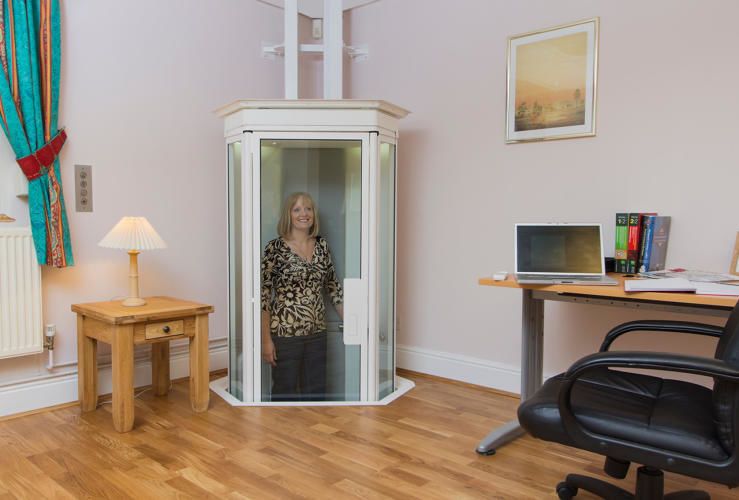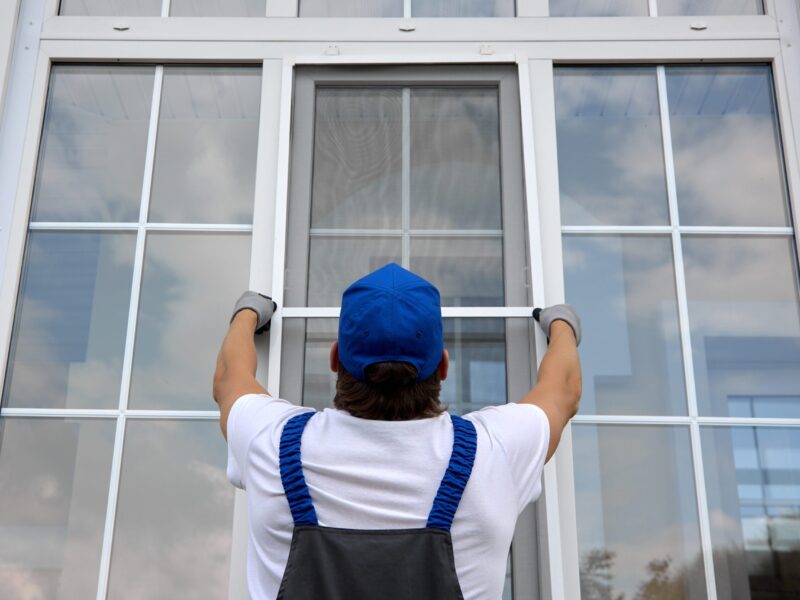No more worries about climbing stairs–small home elevators can help you stay independent in your own home. Find out how elevators can be a budget-friendly addition to your residence, and learn about the different types of small home elevators that are available.
Types of small home elevators
There are several types of small home elevators that are available on the market, and each has its own set of benefits and drawbacks. Some of the most popular types of small home elevators include:
- Hydraulic elevators
Hydraulic elevators are some of the most common types of small home elevators. They use a hydraulic piston to raise and lower the elevator car, and they’re typically very quiet and smooth-running. However, they can be more expensive to install and maintain than other types of elevators, and they may not be able to accommodate as much weight as some of the other options.
- Pneumatic elevators
Pneumatic elevators use air pressure to raise and lower the elevator car. They’re usually less expensive than hydraulic elevators, but they can be noisy and may not be able to accommodate as much weight.
- Screw-driven elevators
Screw-driven elevators use a screw mechanism to raise and lower the elevator car. They’re typically more expensive than pneumatic or hydraulic elevators, but they’re very quiet and smooth-running.
- Traction elevators
Traction elevators use ropes or cables to raise and lower the elevator car. They’re typically more expensive than screw-driven elevators, but they offer a smoother ride and can accommodate more weight.
- Vacuum elevators
Vacuum elevators use a vacuum pump to raise and lower the elevator car. They’re usually the most expensive type of small home elevator, but they’re very quiet and offer a smooth ride.
How much do they cost and how to find a good deal
The cost of a small home elevator can vary depending on the type of elevator you choose, the size of your home, and the features you want. Hydraulic elevators are typically the most expensive type of elevator, while pneumatic and screw-driven elevators are usually less expensive. Traction and vacuum elevators fall somewhere in the middle.
To get the best deal on a small home elevator, it’s important to compare prices from multiple vendors. You can also look for discounts or promotions that may be available.
Installation process and who to hire
Installing a small home elevator can be a complex and involved process. It’s important to hire a qualified and experienced contractor to handle the installation, as they will be able to ensure that the elevator is installed correctly and that all safety standards are met.
The installation process will vary depending on the type of elevator you choose, but it typically involves attaching the elevator car to the track, installing the hydraulic or pneumatic system, and connecting the electrical components.
What to consider when choosing a small home elevator
There are several things you need to consider when choosing a small home elevator, including the type of elevator, the size of your home, the weight capacity, and the features you want. You’ll also need to decide whether you want an internal or external elevator.
Internal elevators are typically more expensive than external elevators, but they offer a number of benefits, including more privacy and security. External elevators may be less expensive, but they can be more susceptible to weather damage and may require more maintenance.
Pros and cons of owning a small home elevator
Small home elevators offer a number of advantages, including increased independence for people with mobility issues, easier access to upper floors, and the ability to transport heavy or bulky items. However, they can be expensive to install and maintain, and they may not be suitable for everyone.
Some of the benefits of small home elevators include:
- Increased independence for people with mobility issues
- Easier access to upper floors
- The ability to transport heavy or bulky items
- A feeling of luxury and sophistication
However, there are also some drawbacks to consider, such as:
- The expense of installation and maintenance
- The need for a qualified contractor for installation
- The possibility of weather damage for external elevators
- The potential for elevator breakdowns
- The need for regular maintenance and inspection
The Bottom Line
Elevators are a great way to add value and convenience to your home. Small home elevators can offer a number of advantages, from increased independence to easier access to upper floors. However, they can also be expensive to install and maintain. When considering a small home elevator, it’s important to weigh the pros and cons to decide if one is right for you.


